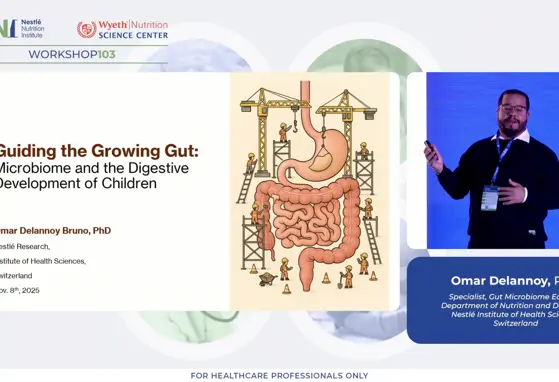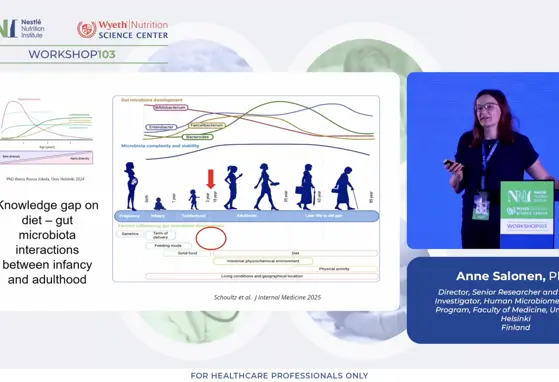Feeding babies with solid food early raises obesity risk later
US researchers have found that feeding babies with solid foods too early was associated with increased odds of obesity later. Among children who were never breastfed - or who stopped breastfeeding before the age of four months - introducing solid foods before age four months was linked to a six-fold increase in the risk of obesity, said a team of researchers from the Children's Hospital in Boston and Harvard Medical School. But, the timing of solid foods didn't increase the odds of becoming obese in youngsters who were breastfed.
These findings were published in the online issue of Pediatrics in February 2011.
In the study, the researchers analysed data on 847 children enrolled in Project Viva, a long-term study of women and their offspring. The women were initially recruited before the birth of their babies, and they were followed for at least three years.
The researchers found that 67% of the children were breastfed, and 32% were formula-fed. When the youngsters were three years old, 9% were considered obese.
Babies who were fed formula, and then introduced to solids foods before they were four months old, were 6.3 times more likely to be obese when they were three years old.
"Our study results suggest that adhering to the current American Academy of Pediatrics’ guidelines of waiting till four months to introduce solids has the potential to reduce the risk of obesity later on," said study author, Dr Susanna Y. Huh, a paediatric gastroenterologist at the hospital.
"Mothers of infants who are breastfed may better understand and recognise their babies' hunger and satiety cues. Mothers of formula-fed infants may not recognise these as well," explained Huh.
But Huh said it needs further study to understand why the introduction of solids before four months appeared to make such a significant difference for the formula-fed babies.
Previous studies showed that early feeding practices were believed to set the stage for later eating patterns and weight status later in life. But these studies hadn't provided consistent answers as to whether or not the timing of the introduction of solid foods could make a difference in a child's weight later in life, the researchers said.
For further information and access to this article, please click on the link below:
Susanna Y. Huh, Sheryl L. Rifas-Shiman, Elsie M. Taveras, Emily Oken, and Matthew W. Gillman
Timing of Solid Food Introduction and Risk of Obesity in Preschool-Aged Children
Pediatrics published online February 7, 2011
Alternatively, copy and paste the link below in your navigation bar: http://pediatrics.aappublications.org/content/127/3/e544
If you liked this post you may also like

Mindful Microbes: The Interplay Between Environment, Gut Microbiome, Brain, and Behavior

Exploring the Crosstalk: Nutrition, Microbiome, and Cardiometabolic Health

Guiding the Growing Gut: Microbiome and the Digestive Development of Children

Nourishing the Microbiome at Preschool age: Dietary influences from infancy to present